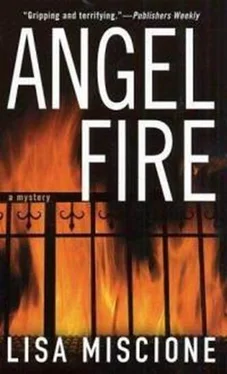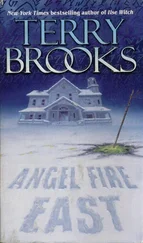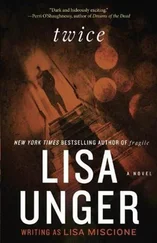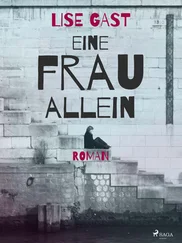
The first book in the Lydia Strong series, 2002
The setting of this book was inspired by the beauty and mood of the Santa Fe and Angel Fire, New Mexico, areas. Readers intimate with these very real places will realize that I have taken significant geographical and architectural liberties as per the demands of the narrative, my vision, and my imagination. Angel Fire , as well as its characters and setting, is entirely a work of fiction.
There are so many people that have had a part in the writing and publishing of this book. And for each of them I feel a unique and heartfelt gratitude:
To Heather Mikesell, in everything I have written since I met you, I have counted on your keen insight, eagle eye, and unwavering support-but have never taken it for granted.
To Carolyn Nichols, for taking the time to look at my homeless manuscript and see beneath the flaws to something better, and for bringing it to the attention of literary agents.
To Elaine Markson, my agent, for taking me on, and shopping this book with unflagging enthusiasm, finding the best possible home for it, and for enduring my neuroses with endless patience.
To Kelley Ragland, my talented and inspiring editor, who made this book better than I ever thought it could be, who, with careful guidance led me to my own voice, taking me beyond being a writer to becoming an author.
To Marion Chartoff, Tara Popick, and Judy Wong, who always believed that this day would come, even when I strayed far from my dreams.
To my parents, Joseph & Viriginia Miscione
Who gave me the tools to build the craft on which I travel…
To my husband, Jeffrey
The North Star,
The red sky at night,
The wind inside my sails…
Lydia Strong ran. She ran until her muscles cramped, until her lungs were on fire. She ran until she couldn’t run any farther. And then she kept running. She ran like she had something to prove, and would die trying to prove it, if necessary. Down the dirt drive from her home, nestled in the foothills of the Sangre de Cristo Mountains north of Santa Fe, off onto the rocky path that led past the church in Angel Fire.
When she ran, she was lost and she was found. She left behind the chaos of her thoughts and fears, left behind her life, her work. In running she found an animalistic kind of peace. She was a living organism motivated only by her physical self, the desire to rest and the drive to go on, go farther, and farther still. She was only her lungs and her legs. It was painful but it was quiet. This ritual served as Lydia’s only religion these days.
She did not deny the possibility of a god or a godlike force, but organized religion…out of the question. Still, this August morning, like most mornings, she felt a tug at her heart as she ran past the small white church. The Church of the Holy Name sat proud and undeniable by the side of the dirt road. White and immovable like the moon it rose from the dust and the weeds. It was just as it was one hundred years ago, solid and righteous as if it had grown from the earth like a mountain. It was so sure of itself, its walls painted orange, pink, purple by the rising sun.
As a child, she had attended church with her mother every Sunday. It was always an event, because her mother was a devout woman. The joy Marion Strong took in the church service was contagious, for Lydia loved her mother fiercely and had wanted, then, to be just like her in every way. She was excited to wear one of her most precious dresses. She would walk with her mother proudly, imagining that people who saw them would think she was an adult, since her shoes made noise just like her mother’s as their heels clicked on the sidewalk.
Once inside the church her mother would give her four quarters, two for lighting a candle for each of her dead grandparents and two for the collection plate.
They would sit in the center pew. Lydia waited with restless anticipation for the time to sing. When the organ sounded and the hymns began, with all the might of her few years Lydia would sing her heart out, for she knew all the words. Her mother would look down at her, smile and sing in her high, melodic voice. Lydia felt such a sense of belonging. Everybody, it seemed, was there for the same reason. Everybody sang together and everybody smiled and shook hands. “Peace be with you.’’
Of course she hadn’t thought about it at the time, but she wondered now if her mother had missed her company when she turned into a rebellious teenager, shunning everything that smacked of institution and refusing to go to church with her “on principle.’’ Her mother never forced her to go; she never lectured or manipulated her with guilt. Her mother just looked away and shook her head. Lydia remembered that small break in the ground beneath their feet as the first in the chasm that would grow between them in her early adolescence.
After her mother’s death, Lydia had tried to return to the church. The loss of her mother had left a hollow place in her heart where the wind blew through. But the service seemed empty, contrived, rather than rich with meaning and faith. Not beautiful, as she remembered. And when it occurred to her that she had never been to mass without her mother, had never entered a church without holding her mother’s hand, she felt deeply sad. Rather than filling the void where her mother’s love had been, her visit made her feel the loss even more profoundly. Now when people asked her about her religious beliefs she answered, “I’m a runner.’’
Always, as she ran past the white adobe church by the side of the dirt road, she saw her mother’s face and remembered the clicking of her shoes on the sidewalk. On this August morning, the desert air still cool, not yet fully heated by the blazing sun on the rise, she thought she heard her mother’s voice, almost audible, on the wind. She stopped and turned around, running in place. The sound of her own labored breathing was so loud in her head she had to quiet herself to hear anything else. But there was only the silence of sand and wind in the trees. Then, in the distance, its sound almost lost in the breeze and the Sangre de Cristos, a crow screamed. The sound was mournful and, Lydia thought, had a tinge of panic to it.
Every year in the weeks preceding the anniversary of her mother’s death, an agitated restlessness overtook Lydia. It interrupted her sleep, her work. And instead of lessening over time, almost fifteen years now, it had worsened. This feeling often compelled her to wander in the night, or to drive aimlessly for miles, or to do other things that she would rather forget. A battalion of shrinks had never been able to cure her. She had long given up on psychiatrists and their cabinets filled with happy pills. It was the same feeling on a larger scale as when she’d misplaced her keys or wallet and couldn’t rest until she laid her hands on them again. Except that she wasn’t sure what she had lost and she had the desperate feeling that it would never be found. But that she would keep looking for the rest of her life. It was something about herself that she had stopped trying to explain, something she had grown to accept.
On this night her restlessness caused her to leave home, and for the second time, run the route past the Church of the Holy Name. The clock read 11:58 p.m. when she left her house. She had been rolling sleepless in her bed when the feeling took her. She tried to ignore it, to clear her head and force herself to fall asleep. But her muscles ached for a run. And something deeper inside her ached for it, too, for the exertion and for the exhaustion that followed when her body had been pushed to its limit.
Читать дальше













